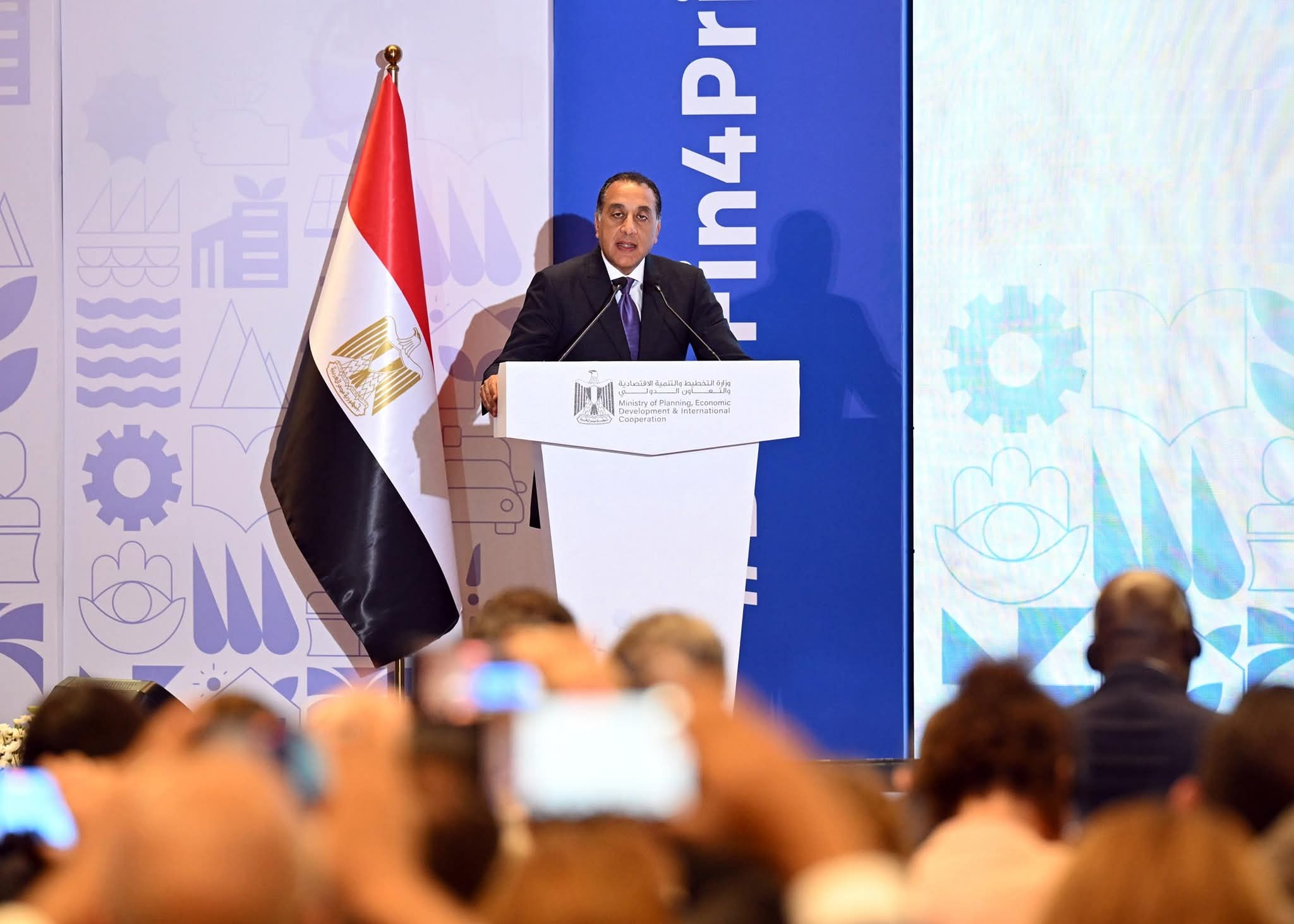Dr. Mostafa Madbouly, Prime Minister, delivered a speech during his participation in the “Development Financing to Empower the Private Sector: Economic Growth and Employment” conference, held by the Ministry of Planning, Economic Development, and International Cooperation in the New Administrative Capital today. The conference was attended by a number of ministers, ambassadors, heads and representatives of several development partners, the European Union in Egypt, international institutions, and private sector companies.
At the beginning of his speech, Dr. Mostafa Madbouly welcomed the attendees to this important conference, held under the title “Development Financing to Empower the Private Sector: Economic Growth and Employment.” He noted that today’s meeting embodies a firm belief that the private sector is not merely a partner, but rather the primary driver of economic growth in Egypt. He explained that the private sector has proven in recent years its ability to generate more than 80% of job opportunities and today represents approximately 70% of the gross domestic product (GDP), becoming the backbone of the Egyptian economy.
The Prime Minister highlighted the vital and constructive role played by the Egyptian state over the past years, represented by the implementation of massive infrastructure investments, including the development of roads and railways, and the expansion of energy networks, ports, and airports. He explained that these public investments were a strategic step to create a supportive environment from which the private sector can confidently emerge and establish an effective role that will enable it to lead the development engine in the coming period.
Dr. Mostafa Madbouly pointed out that, based on the directives of His Excellency President Abdel Fattah El-Sisi, the Egyptian state has been keen to redefine its role in economic activity by launching the “State Ownership Policy” document, which sets a clear framework for the limits of state intervention and establishes a more disciplined regulatory environment. The document also includes regulating the status of subsidiaries, ensuring financial disclosure, and achieving competitive justice. It also reduces exemptions granted to state-owned companies and establishes a national database for these companies, facilitating the offering of shares to the private sector and involving strategic partners in their management, as part of a broader vision to maximize the efficiency of state asset management.
The Prime Minister added: “The state has also taken serious steps to control public spending on projects. A ceiling has been set for public investments, focusing on projects that have been implemented at more than 70%. This will enhance the efficiency of these investments and provide more space for the private sector. Through the 2024 Competition Protection Law, the state is also working to combat monopoly, enhance competitiveness, and regulate mergers. This will enhance the distinction between public and private sector activities and provide a more just and transparent environment.”
Dr. Mostafa Madbouly pointed out that, to further the reform process, the state has placed great emphasis on improving the business environment. The “Golden License” was launched to facilitate the start-up of projects, reduce the licensing period, and restructure the tax system to make it more just and inclusive. Emphasis has also been placed on updating the legislative framework and ensuring the rule of law, thus enhancing confidence in the investment climate. A comprehensive inventory of all fees and non-tax financial burdens imposed on investors was also carried out to reduce burdens and enhance governance and transparency.
The Prime Minister explained that despite the geopolitical and economic challenges facing the region and the world, the Egyptian economy has proven its resilience and ability to adapt. The real GDP growth rate reached approximately 4.3% in the second quarter of the current fiscal year, with positive forecasts from international financial institutions, including the International Monetary Fund, the World Bank, and other international research and think tanks, which have reinforced their positive outlook for the Egyptian economy based on the effective implementation of the economic and structural reform program.
The Prime Minister added: “At the same time, we have witnessed an increase in private investment of more than 50% of total investments, and a rise in foreign direct investment flows. Additionally, non-oil exports increased by 33% during the first nine months of the current fiscal year, and the unemployment rate fell to 6.3%, compared to its highest levels before the COVID-19 pandemic. We have also witnessed a decline in the fiscal deficit to 6.5%, while we are moving towards reducing the public debt-to-GDP ratio to between 85% and 87%.”
The Prime Minister noted that there is no doubt that all these indicators confirm that we are on the right path toward achieving sustainable economic growth, led by the private sector, which constitutes the cornerstone of stimulating the national economy. He added that these positive developments would not have been possible without launching a comprehensive structural reform program aimed at enhancing economic stability, improving the investment climate, and supporting the transition to a green economy. He emphasized that these reforms were implemented within the framework of strategic partnerships with international financial institutions, which, through financing packages and technical support programs, have contributed to supporting the government’s efforts to adopt effective policies and clear reform procedures. The Prime Minister explained, during his speech, that in addition to this, significant financial resources have been directed through international partnerships to enhance economic stability, expand the social protection network, increase transparency, and improve the investment environment. Reforms have also been implemented to facilitate the integration of the informal sector and provide a fair legal environment for small and medium-sized enterprises, especially those owned or managed by women, enabling them to integrate into the formal economy, enhancing growth opportunities, and creating job opportunities. He pointed out that these joint efforts have yielded tangible results, manifested in reducing uncertainty among investors and enhancing the private sector’s ability to grow and contribute to achieving sustainable economic development. This is in light of the commitment to continue the reform process and consolidate cooperation with international partners, to advance the economy.













